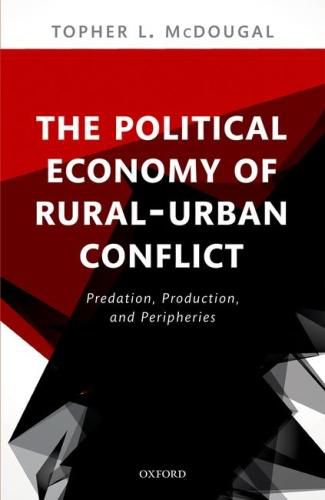Readings Newsletter
Become a Readings Member to make your shopping experience even easier.
Sign in or sign up for free!
You’re not far away from qualifying for FREE standard shipping within Australia
You’ve qualified for FREE standard shipping within Australia
The cart is loading…






In some cases of insurgency, the combat frontier is contested and erratic, as rebels target cities as their economic prey. In other cases, it is tidy and stable, seemingly representing an equilibrium in which cities are effectively protected from violent non-state actors. What factors account for these differences in the interface between urban-based states and rural-based challengers? To explore this question, this volume examines two regions representing two dramatically different outcomes. In West Africa (Liberia and Sierra Leone), capital cities became economic targets for rebels, who posed dire threats to the survival of the state. In Maoist India, despite an insurgent ideology aiming to overthrow the state via a strategy of progressive city capture, the combat frontier effectively firewalls cities from Maoist violence.This book argues that trade networks underpinning the economic relationship between rural and urban areas - termed ‘interstitial economies’ - may differ dramatically in their impact on (and response to) the combat frontier. It explains rebel predatory tendencies towards cities as a function of transport networks allowing monopoly profits to be made by urban-based traders. It explains combat frontier delineation as a function of the social structure of the trade networks: hierarchical networks permit elite-elite bargains that cohere the frontier. These factors represent what might be termed respectively the ‘hardware’ and ‘software’ of the rural-urban economic relationship.Of interest to any student of political economy and violence, this book presents new arguments and insights about the relationships between violence and the economy, predation and production, core and periphery.
$9.00 standard shipping within Australia
FREE standard shipping within Australia for orders over $100.00
Express & International shipping calculated at checkout
In some cases of insurgency, the combat frontier is contested and erratic, as rebels target cities as their economic prey. In other cases, it is tidy and stable, seemingly representing an equilibrium in which cities are effectively protected from violent non-state actors. What factors account for these differences in the interface between urban-based states and rural-based challengers? To explore this question, this volume examines two regions representing two dramatically different outcomes. In West Africa (Liberia and Sierra Leone), capital cities became economic targets for rebels, who posed dire threats to the survival of the state. In Maoist India, despite an insurgent ideology aiming to overthrow the state via a strategy of progressive city capture, the combat frontier effectively firewalls cities from Maoist violence.This book argues that trade networks underpinning the economic relationship between rural and urban areas - termed ‘interstitial economies’ - may differ dramatically in their impact on (and response to) the combat frontier. It explains rebel predatory tendencies towards cities as a function of transport networks allowing monopoly profits to be made by urban-based traders. It explains combat frontier delineation as a function of the social structure of the trade networks: hierarchical networks permit elite-elite bargains that cohere the frontier. These factors represent what might be termed respectively the ‘hardware’ and ‘software’ of the rural-urban economic relationship.Of interest to any student of political economy and violence, this book presents new arguments and insights about the relationships between violence and the economy, predation and production, core and periphery.